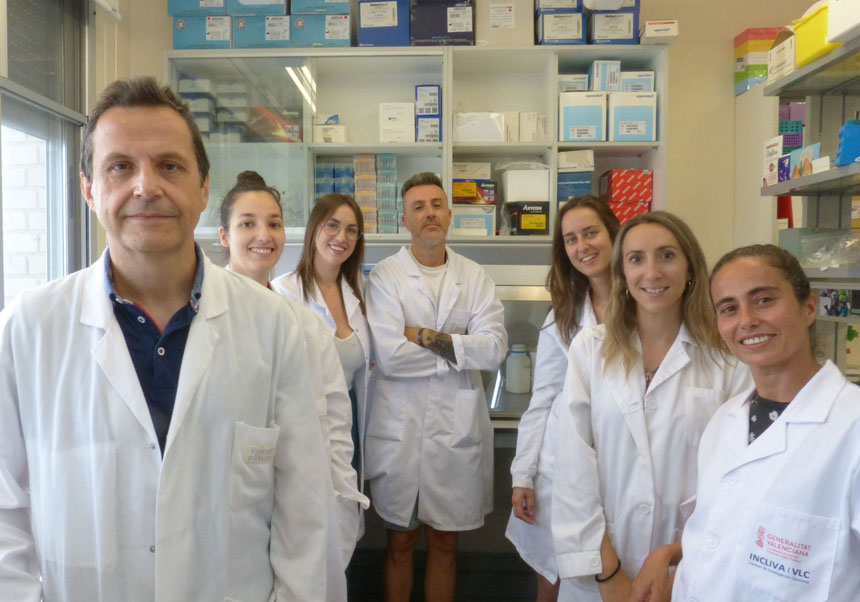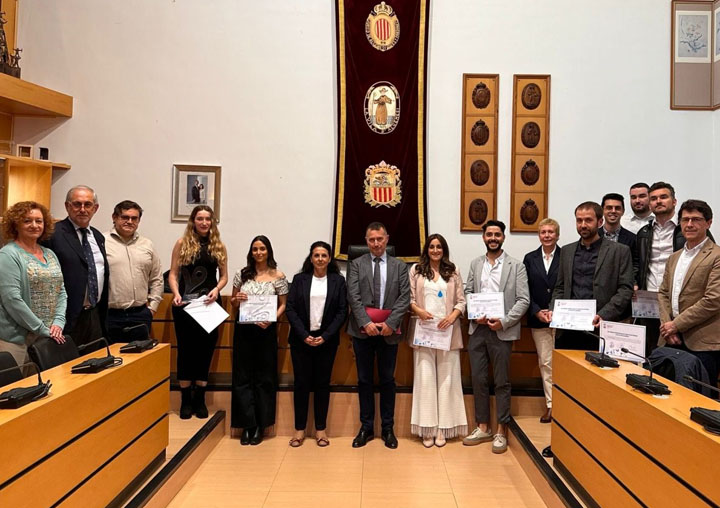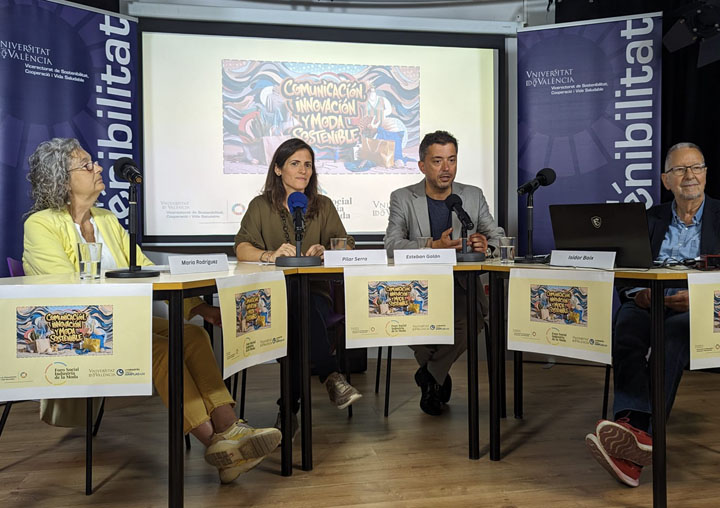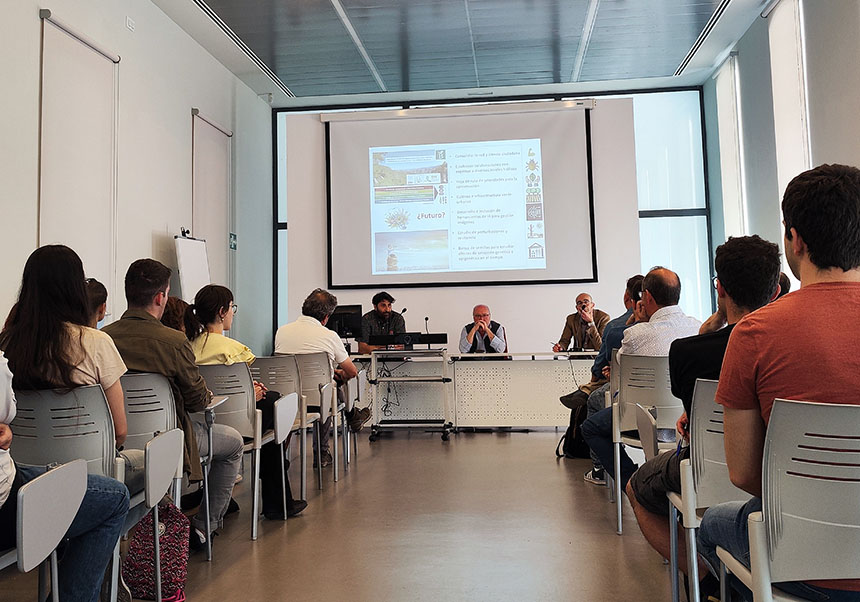The University of Valencia is researching a drug for limb-girdle muscular dystrophy (LGMDD2), which causes progressive atrophy
- Scientific Culture and Innovation Unit
- October 24th, 2023

The Translational Genomics Laboratory of the University of Valencia, directed by the Full Professor of Genetics Rubén Artero, is working on a mouse model that will allow the evaluation of drugs previously identified in Drosophila (vinegar fly) for limb-girdle muscular dystrophy (LGMDD2), a rare genetic disease with no cure that causes progressive atrophy in the muscles of the waist and shoulders. Artero and Alicia Novella participate this Friday morning, October 27, in a conference organised by the Conquistando Escalones Patients Association in Vila-real in which the advances regarding this and other rare diseases will be explained.
Faces known to the general public will participate in this event, such as Álex Roca, a leader in sports with disabilities, with cerebral palsy and a Guinness record, and Juan Carlos Unzué, former soccer player and former coach diagnosed with ALS. Specialists from the La Fe Health Research Institute, the Carlos III Health Institute or the Príncipe Felipe Research Centre, among others, will also participate.
“The fact that LGMDD2 is a disease that especially affects the Valencian Community has always been an additional stimulus for us and the long-term objective has been to be able to propose a therapy that can be tested on patients as soon as possible. We have to keep in mind that we were starting from almost nothing at the beginning. The mutation was known, but there was no animal or cellular model to work with. These tools had to be generated and now we are in better conditions to propose specific therapeutic options”, explains Rubén Artero.
Limb-girdle muscular dystrophy D2 (LGMDD2) is an ultra-rare genetic disease that, like most rare diseases, lacks treatment. It is estimated that it affects about 60 patients worldwide and is especially prevalent in the Valencian Community. The patients and relatives founded the Conquistando Escalones association to raise funds for their research and treatment, and in this context the support that the association has provided to the research of the Translational Genomics laboratory of the University of Valencia is notable.
The research group has developed the first experimental model of LGMDD2 in Drosophila, from which the molecular mechanisms involved in myopathy have been delved into, such as the overactivation of autophagy, and the first screening of more than 1,400 drugs on the model. Currently, it has been possible to identify 11 candidate compounds that could be potential drugs to treat LGMDD2.
Patients show weakness and progressive atrophy in the muscles of the waist and shoulders, and a wide variety in the age of onset, progression and severity of muscular dystrophy is characteristic. Early symptoms include difficulty running and/or climbing steps which, over time, leads to the need to use a wheelchair. In severe clinical cases, the progression of weakness and muscle degeneration ends up compromising respiratory ability.
The Translational Genomics laboratory has extensive experience in the development of models of neuromuscular diseases. It forms a unique alliance together with other research groups in Spain and Italy to combine their efforts and research, among which is the Neuromuscular Pathology and Ataxias Group of the La Fe Hospital in Valencia and the group of José Alcamí (Carlos III Health Institute, Madrid). This alliance is coordinated by the Conquistando Escalones association of those affected by LGMDD2.
More information: Conquistando Escalones patients association (website).
















